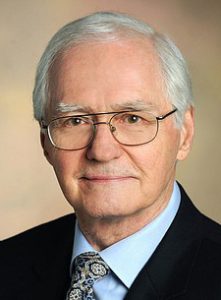Editor’s note: This column was published March 2, 2023, in the Pine Belt News of Hattiesburg, Miss., and is republished here with slight edits to fit the remembrance of Jimmy Carter.
In Jimmy Carter’s boyhood autobiography, An Hour Before Daylight, he recounts two incidents that have profound implications for our lives today.
In one, he and his childhood playmate, A.D. (for Alonzo Davis), flagged down the train that came by the hamlet of Archery, Ga., and rode into Americus to see a movie, something they often did when they were not needed around the farm.
On the way, they separated, with Jimmy sitting in a designated “white” seat on the train, and A.D. finding a seat in the “colored” car. They walked down the street to the Rylander Theater together but separated again when Jimmy entered the front entrance to sit downstairs while A.D. entered the back door and sat in the third level.
After the show, reunited, they walked to the train station only to separate a third time, repairing to their separate “colored” and “white” seats.
Looking back years later, Carter said, “I don’t remember ever questioning the mandatory racial separation, which we accepted like breathing.”
Until he was about 14, Carter’s closest friends were the Black boys who lived on the family farm in Archery, children of the tenant families who worked the place. Although he lived in “the big house” and they lived in tenant shacks; although his parents had a car and theirs didn’t; and although they went to different schools and churches, “there were no acknowledged differences of rank or status when (we) were together in the fields, on the creek banks or playing in our yard or theirs.”
“There were no acknowledged differences of rank or status when (we) were together in the fields, on the creek banks or playing in our yard or theirs.”
Then one day, something happened. Jimmy, A.D. and another friend “approached the gate leading from our barn to the pasture. To my surprise,” wrote Carter, “they opened it and stepped back to let me go through first. … It was a small act, but a deeply symbolic one. After that,” Carter reflected, “they often treated me with some deference. … A precious sense of equality had gone out of our personal relationships, and things were never again the same between them and me.”
What power such unwritten, unstated rules hold over us! They are “accepted like breathing.”
We obey them faithfully because they operate below the level of awareness. They are invisible and often create robot-like routines.
A good example is spoken language. When my wife and I encountered friends at lunch after church last Sunday, as we greeted them and met others at their table, we weren’t thinking about subject-verb agreement, for example, or reminding ourselves to put adjectives before and not after nouns. We were focused on our friends and enjoying the conversation. We were just talking.
Those unspoken yet powerful rules, such as language rules, also exercise vast control over our behavior. That’s not all bad. Thankfully, we are able to form deep ruts in our minds that allow us to operate on autopilot much of the time. We walk without thinking through the mechanics of walking. We lock and unlock doors relying on routines. Much of our driving is guided by habit.
It was “normal” for Jimmy and A.D. to sit separately on the train to Americus and to sit separately in the Rylander Theater; it was “normal,” taken-for-granted, for A.D. to step back and let Jimmy go through the gate first in 1938 in the hamlet of Archery, Ga. But all that changed when enough people questioned what was normal.
Carter was one of those who questioned “the way things were” in South Georgia when that was a risky thing to do. And he acted; he didn’t just notice the rampant racial discrimination that was baked into their way of life and move on. He took the words of the Sermon on the Mount seriously. And those Two Greatest Commandments articulated by that same once-obscure rabbi from Nazareth, he took them seriously too.
He could, at the end of his life say, along with the ghost of Jacob Marley (in Charles Dickens’ A Christmas Carol): “Mankind was my business. The common welfare was my business; charity, mercy, forbearance, and benevolence, were, all, my business.”
So I wonder what things are “normal” for us now that will cause future generations to gasp and ask, “How could they?” Equally important, I wonder how we can discover those things now and begin to change them.
Richard Conville is a retired professor of communication studies and long-time resident of Hattiesburg, Miss. Reach him at [email protected].
Related articles:
Jimmy Carter and the strength of fields | Opinion by Erich Bridges
Jimmy Carter was the most decent and respectable president of my lifetime | Opinion by Wendell Griffen
Jimmy Carter, a lifelong Baptist, left a legacy of faithfulness, compassion and justice
Love, faith and simplicity: Remembering our visit with President and Mrs. Carter | Opinion by Barry Howard
President Carter: The second half of life can be better than the first | Opinion by Maina Mwaura



